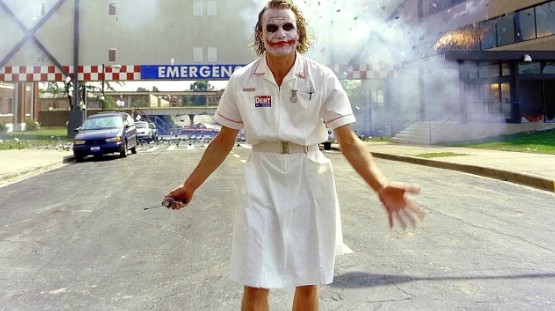Share this post
Dr. Jason Pirozzolo Discusses The Joker’s Trauma and Well-Being
In the gripping narrative of Joker (2019), Arthur Fleck’s journey from a struggling comedian to the infamous Joker is marked by a pivotal injury—a gunshot wound to the shoulder. Dr. Jason Pirozzolo, a renowned physician, sheds light on the profound health implications of such trauma and its potential impact on mental health.
“Physical injuries can have a cascading effect on an individual’s psychological well-being,” explains Dr. Pirozzolo. When Arthur sustains a gunshot wound to his shoulder, the immediate concern is the physical recovery. However, most importantly, the trauma from the injury can lead to significant mental health challenges. “The pain and disability resulting from such an injury can exacerbate underlying mental health issues,” Dr. Pirozzolo notes.
Trauma from Physical Injuries
Besides the obvious physical pain, the psychological strain of coping with a sudden injury can trigger or worsen conditions like depression and anxiety. In Arthur’s case, the injury serves as a catalyst, pushing him further into isolation and despair. “Chronic pain and limited mobility can lead to feelings of helplessness and frustration,” Dr. Pirozzolo emphasizes, highlighting how these emotions can spiral into more severe mental health crises if not addressed promptly.
Transitioning from physical to mental health, Dr. Pirozzolo points out that “comprehensive care is essential for individuals recovering from traumatic injuries.” This includes not only medical treatment for the wound but also psychological support to help them navigate the emotional aftermath. In Arthur’s transformation into the Joker, we see a stark illustration of what can happen when mental health needs are neglected. “Without adequate mental health support, individuals may struggle to cope with their new realities, leading to drastic behavioral changes,” he adds.
Support Systems for Recovery
Moreover, the societal response to injury plays a crucial role in recovery. “Support systems, whether from family, friends, or healthcare professionals, are vital in helping individuals regain their sense of self and purpose,” Dr. Pirozzolo states. In Arthur’s case, the lack of effective support amplifies his descent into chaos, underscoring the importance of a strong support network in healing both body and mind.
“Preventative measures and early intervention can make a significant difference,” Dr. Pirozzolo advises. By recognizing the signs of psychological distress early on, healthcare providers can implement strategies to mitigate long-term mental health issues. This proactive approach not only aids in physical recovery but also fosters emotional resilience.
In conclusion, Arthur Fleck’s injury in Joker serves as a powerful reminder of the intricate link between physical trauma and mental health. Dr. Jason Pirozzolo underscores the necessity of holistic care, addressing both the body and the mind to ensure comprehensive healing. “Health is multifaceted,” he asserts, “and addressing all aspects of a patient’s well-being is crucial for true recovery.”
Stay informed and take charge of your health by following Dr. Jason Pirozzolo for more insightful articles on comprehensive healthcare and wellness strategies.




















